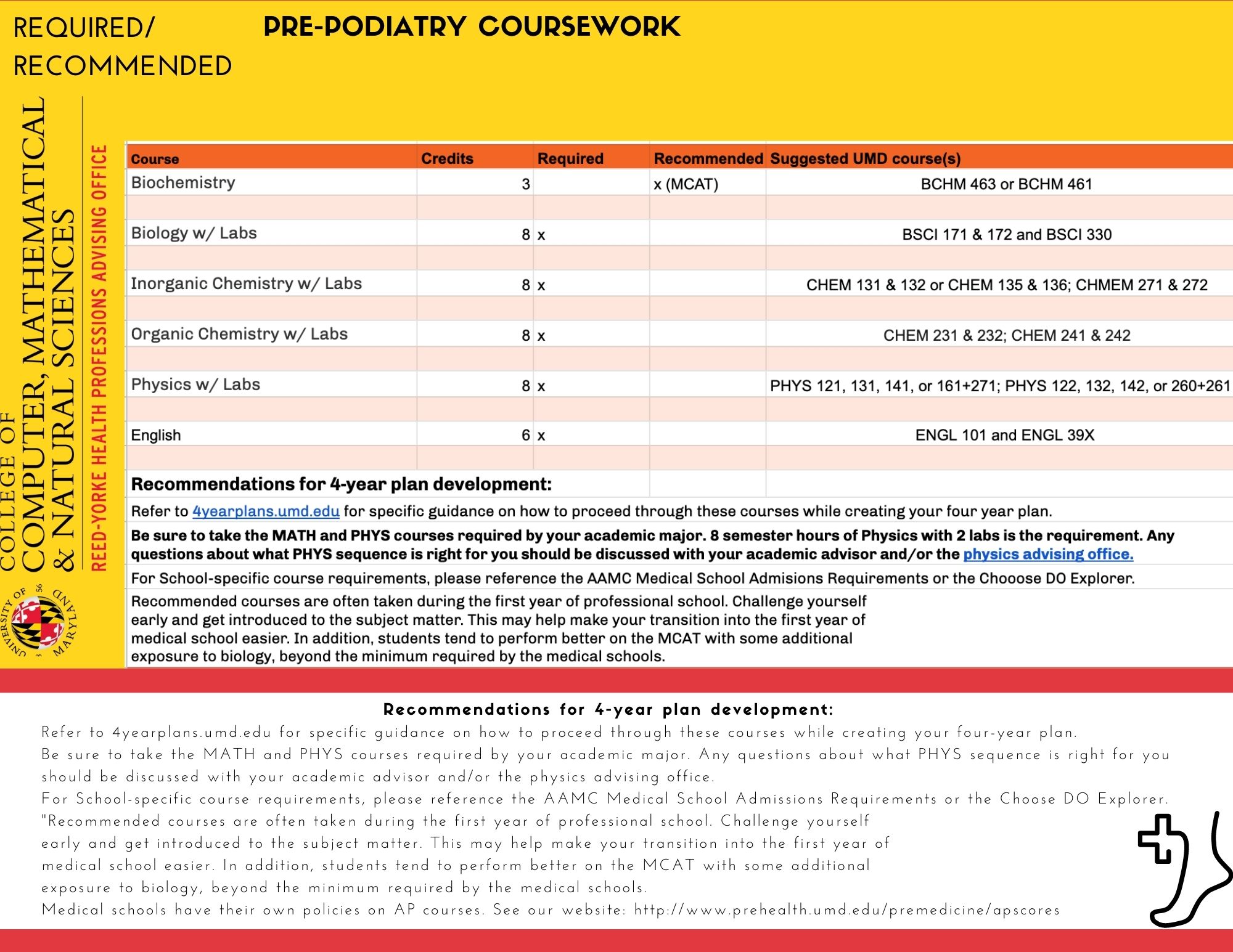Podiatrists are Doctors of Podiatric Medicine; they diagnose and treat conditions affecting the foot, ankle, and related structures of the leg. Podiatric medical schools award the D.P.M. degree after four years of study. The first two years typically consists of foundational science courses and their application to the study of medicine. The final two years are more patient-focused and the student is exposed to a variety of specialties within the medical field. Following graduation, more advanced, specialized training takes 3 years to complete. Podiatrists practice in private settings, educational institutions, hospitals, and government agencies. They are trained to examine the foot and lower leg for any diseases and disorders and are able to provide surgical or medical treatment. Podiatrists also collaborate closely with other health professionals to control and treat diseases.
Start by completing a bachelor's degree program, preferably in a science-related field. While specific majors aren't usually required, subjects such as biology, chemistry, or anatomy can provide a solid foundation for future studies in podiatry. Fulfill at least 1-2 years of continuous clinical experiences and at least 1 year of community service work. Medical College Admission Test (MCAT): Take the MCAT, which is the standardized test required for admission to most podiatric medical schools in the United States. Prepare for the exam by studying the relevant subjects, such as biology, chemistry, physics, and mathematics. You will apply to podiatry schools through AACPM.
Podiatry programs typically last four years and are offered at accredited podiatric medical schools. During your studies, you'll learn about foot and ankle anatomy, physiology, biomechanics, pharmacology, and clinical skills. You will also participate in clinical rotations and gain hands-on experience by working with patients under the supervision of experienced podiatrists. These rotations will provide you with exposure to various aspects of podiatry, including surgery, orthopedics, sports medicine, and wound care. After graduating from podiatric medical school, complete a residency program. Podiatric residencies typically last three years and provide specialized training in different aspects of podiatric medicine and surgery. Residencies are an opportunity to refine your skills and gain practical experience under the guidance of experienced podiatrists. Lastly, you will obtain state ceritfication and board licensure.
Print your own copy of Prerequisite Coursework

There are many Minors that cover topics critical to expanding understanding of the various determinants of health. Coursework related to Diversity, Equity, and Inclusion can be helpful in developing cultural awareness, cultural humility, and an understanding of systemic discrimination in the health care system. Even if your academic plan does not permit adding a minor, it is worth reviewing the curated course lists for courses that will stretch you, increase your language for difference and disparity, show your intellectual curiosity, and improve your critical reasoning skills.
Requirements:
- At least 1 year clinical experience(s)
- At least 1 year long-term community service work
Alumni Blog: Podiatry
There are currently no alumni blog posts tagged with podiatry.



